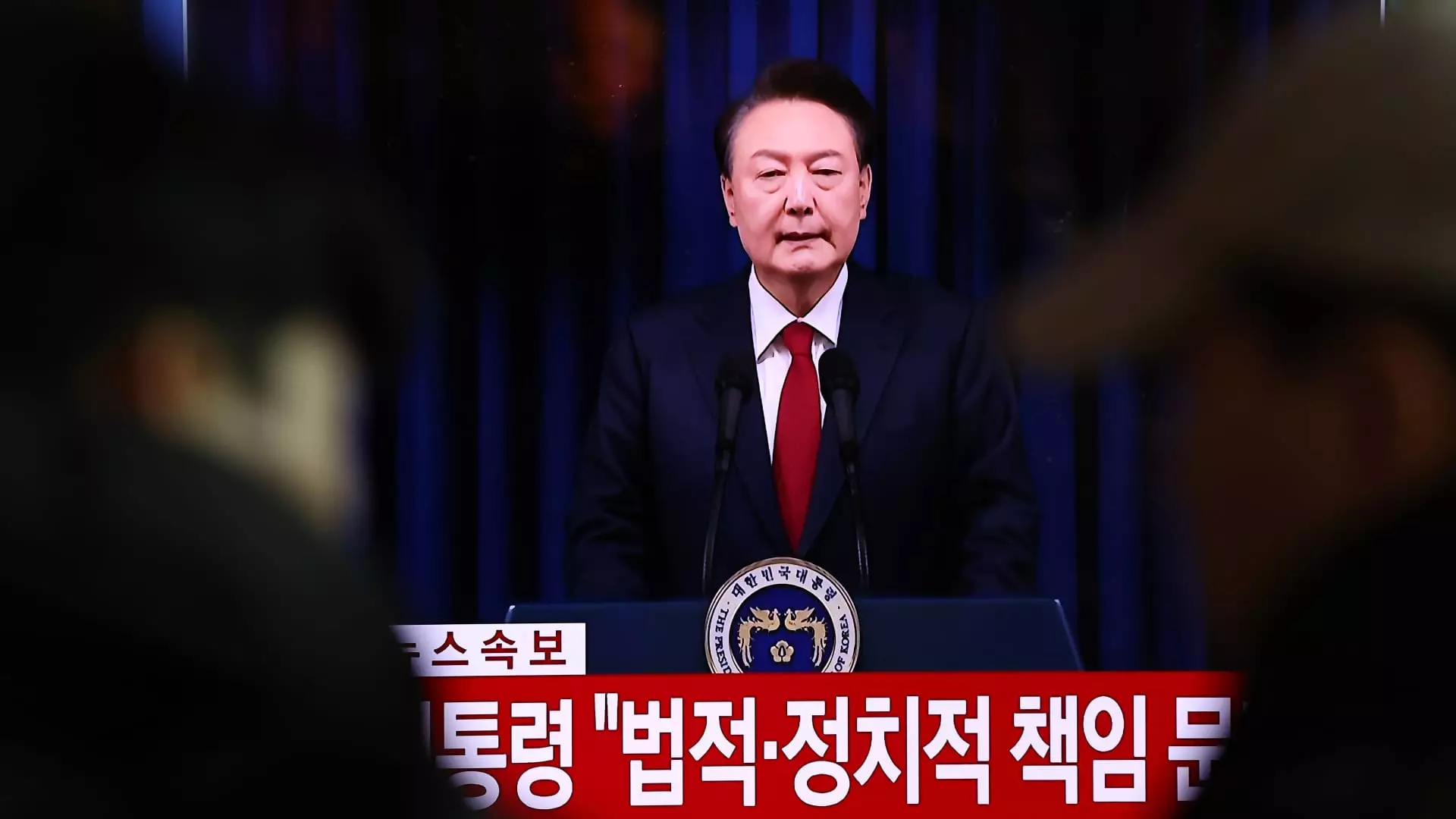South Korea is currently navigating one of its most turbulent political landscapes, marked by the recent impeachment of President Yoon Suk Yeol. This unprecedented political drama offers insight not only into the immediate implications for South Korean governance but also the broader socio-economic and democratic ramifications. The stakes are high, and the potential for upheaval is palpable as the country grapples with both internal dissent and international scrutiny.
President Yoon’s impeachment was precipitated by an ill-advised attempt to impose martial law—a move that harkens back to the nation’s military past. On December 3, Yoon invoked martial law for the first time since 1979, citing threats to the country’s constitutional order posed by pro-North Korea groups. While this decision was swiftly reversed, it laid a foundation of distrust and skepticism among lawmakers and the public. The martial law episode catalyzed opposition parties to crystallize their efforts toward impeachment. Ultimately, this culmination of events forced the National Assembly to confront Yoon’s governance directly, transforming a potential political crisis into a moment of reckoning.
The execution of the impeachment motion and its aftermath highlights a critical reflection on the fissures within South Korean politics. Yoon’s People Power Party (PPP), which had previously backed him, found itself divided after PPP leader Han Dong-hoon openly supported the anti-Yoon sentiment in the Assembly. This shift underscores the fluidity and unpredictability of political alliances, illuminating how quickly fortunes can change within the realm of South Korean politics.
Yoon’s presidency has been marred by scandal, not least of which involves his wife, Kim Keon Hee, whose business dealings have raised significant ethical concerns. As his approval ratings plummeted, Yoon’s leadership faced a growing crisis of legitimacy. It raises a poignant question: How does a sitting president navigate a landscape fraught with both personal and political challenges? The answer, as evident in Yoon’s defiant national address, is complex. He pledged to “fight to the end,” demonstrating both resilience and a potential disconnect from the realities faced by the electorate.
This scenario highlights the dangers of rigidity in leadership amid testing times. Yoon’s refusal to yield to mounting pressures reflects not only his personal conviction but also questions the integrity of democratic processes. The specter of martial law looms large over South Korea, indicating a troubling correlation between political strife and civil liberties that could drastically reshape the democratic fabric of the nation.
From a macroeconomic standpoint, the political instability raises valid concerns about the future trajectory of South Korea’s economy, particularly as it pertains to foreign investment and market confidence. The International Monetary Fund predicts a growth rate of 2.5% for South Korea in the coming year, but observers note that prolonged instability could hinder this forecast. Economic experts like John Woods of Lombard Odier emphasize the resilience of the South Korean economy and the importance of local earnings as a stabilizing factor amid the chaos.
Moreover, South Korea’s status as a leading player in technology, particularly in the fields of artificial intelligence and semiconductor manufacturing, positions it as a bellwether for global technological trends. The interconnected nature of modern economies means that internal political strife could catalyze external repercussions, echoing through global markets that rely on South Korea for technological leadership.
As South Korea stands at this pivotal crossroads, the resolution of Yoon Suk Yeol’s impeachment is unlikely to be straightforward. Political dynamics will continue to shift, and the extent to which Yoon can retain power, or the degree to which his successors can stabilize governance, remains uncertain. The country must contend with the dual challenges of upholding democratic ideals while fostering economic growth. In the coming weeks, South Korea will not only define its leadership but also affirm its commitment to democracy amidst adversity. The world watches keenly, recognizing that the outcome here has implications far beyond the Korean Peninsula.


Leave a Reply